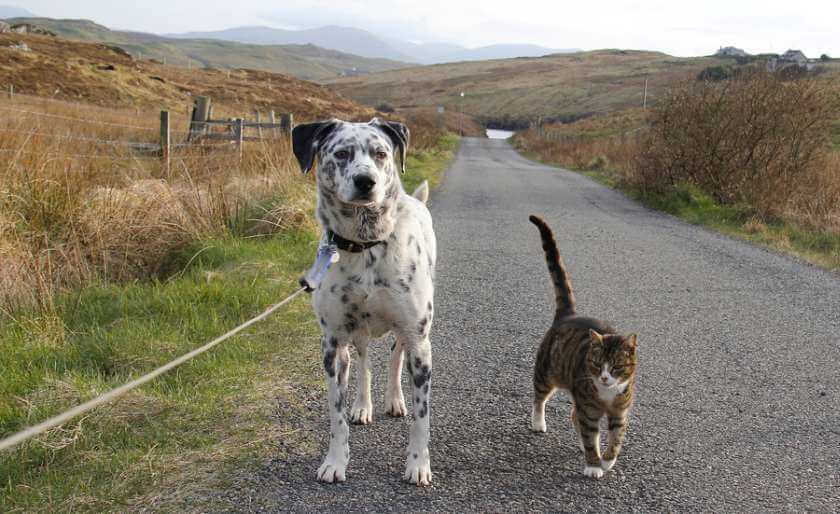American pets lose out to big business interests
I thought the Current Good Manufacturing Practice and Hazard Analysis and Risk-Based Preventive Controls for Food for Animals proposed rule for animal food was bad, but another new proposal, meant to protect consumers from U.S. importers who bring potentially dangerous and untested foreign pet food ingredients and products into America, will do no such thing.
U.S. Food and Drug Administration noble effort, the Foreign Supplier Verification Programs for Importers of Food for Humans and Animals (FSVP) a policy intended to strengthen oversight of imported foods which for the most part fall right through the gaping cracks in our food safety system and land directly in our pet’s bowls, has been virtually gutted by the White House.
It started out as an OK proposal; But after the White House had a whack at it, they obliterated any scrap of hope consumers had that the FSVP mandated by Food Safety Modernization Act to put the brakes on the continuous flow of crap from foreign countries (one in particular, which shall remain nameless) from harming them and their furry four-legged family members.
Mollifying industry
I don’t know why the White House would gut a perfectly good proposed rule meant to protect people and animals from sketchy overseas food and the U.S. companies that profit from it, but more seasoned consumer advocates, probably jaded from years of these kind of disappointments, say the changes were made “to mollify the food industry that these programs will not be that much of a change for them. It seems to be a way to appease the corporations to make the rules appear less burdensome,”said Michael Patoka, Policy Analyst, Center for Progressive Reform.
Isn’t that nice? They were just trying to be helpful.
According to Micheal, “OIRA is the regulatory review body within the White House that frequently holds onto agency rules…often mangling and weakening the protections developed by agencies at the behest of regulated industries.”
Last month, when the FDA posted mangled result of the Office of Management and Budget revisions on the FSVP, and consumer advocates saw it, they had a fit and fell in it.
The White House did it
In the original draft of the FSVP rule, FDA had planned to require on-site audits for all foreign suppliers of food in almost every case; basically any ingredient subject food safety regulation.
But the OIRA nixed that. I suppose thinking it might rumple some feathers in the trade department, they offered two (more trade friendly) options instead.
Two lousy choices
In the first option, onsite audits would be required only for the most serious hazards, while importers could get to choose any verification method for “less serious” hazards.
In the second, and distinctly worse option, would allow the importer to choose the verification method for everything—onsite audits would never actually be required.
Even the first option is pretty much a joke as the importer gets to determine whether something is a serious hazard or not, and thus whether the importer would have to do an onsite audit.
But wait, it gets worse
Originally, the FSVP requirements would have applied to importers of all sizes, and to food from foreign suppliers of all sizes; but the OIRA added exemptions to “very small” importers and foreign suppliers, which would only have to comply with a minimal set of requirements, like obtaining written assurance of compliance from the supplier every two years instead of performing any of the usual hazard-analysis and verification activities.
Now get this – we’re not talking about dinky little processors carving out coconuts under a palapa somewhere – we’re talking about any importer or foreign supplier that does up to $500,000 in annual sales.
The horrible part
Here’s the worst part: FDA estimates that 59% of processed food suppliers and 93% of raw produce suppliers would fall under this $500,000 category and be totally exempt from the proposed rule.
This time you can blame the White House, because in one fell swoop, OIRA exempted nearly 40% of all importers from the rule’s major requirements, and ensured that food from foreign suppliers would continue to arrive in the U.S. without any meaningful rules.
At this point, the consumer advocates are praying that FDA goes for option #1 on the FSVP rule, because lord knows — option #2 — would be a disaster.
Do you remember that dorky 70’s show called the Price is Right? I’m trying to envision what horrid prize Bob Barker might have waiting behind door #2 should some poor sucker choose it.
We don need no stinking tests
Incredibly, the proposal did not mandate certain verification activities — such as testing; The draft rule did not include such requirements and that should be changed in the final rule. Requiring mandatory verification provisions for both domestically produced and imported foods would be the strongest approach to preventing foodborne illnesses and adulterated food from entering commerce.
Don’t forget!
Currently, the public comment period for the FSVP has been extended to Jan 27, 2014. Don’t miss out on your chance to tell the U.S. government why this rule matters to you, your pets and to farm animals!
Find out more: http://www.regulations.gov/#!documentDetail;D=FDA-2011-N-0143-0036


Comments (2) Write a comment